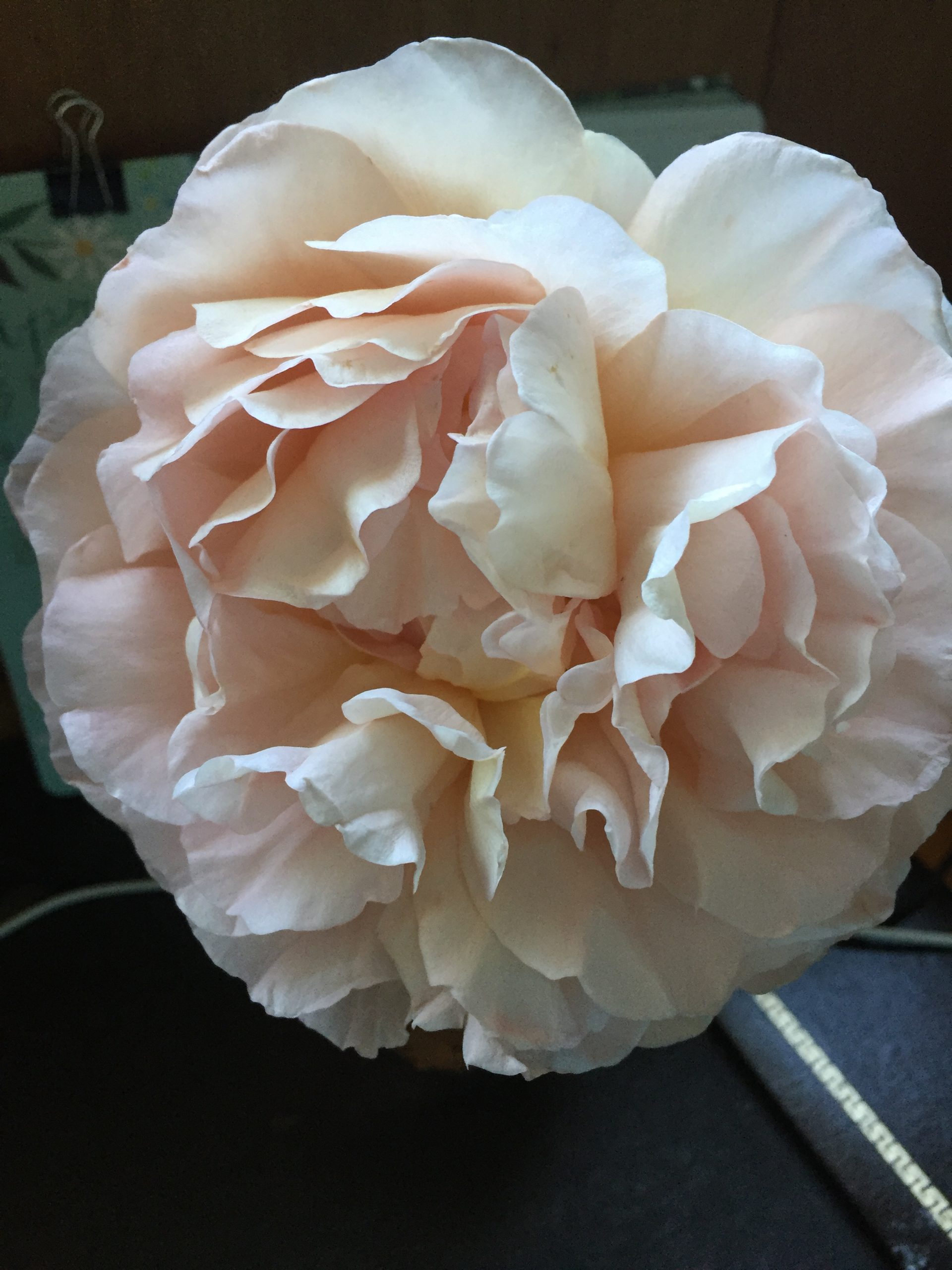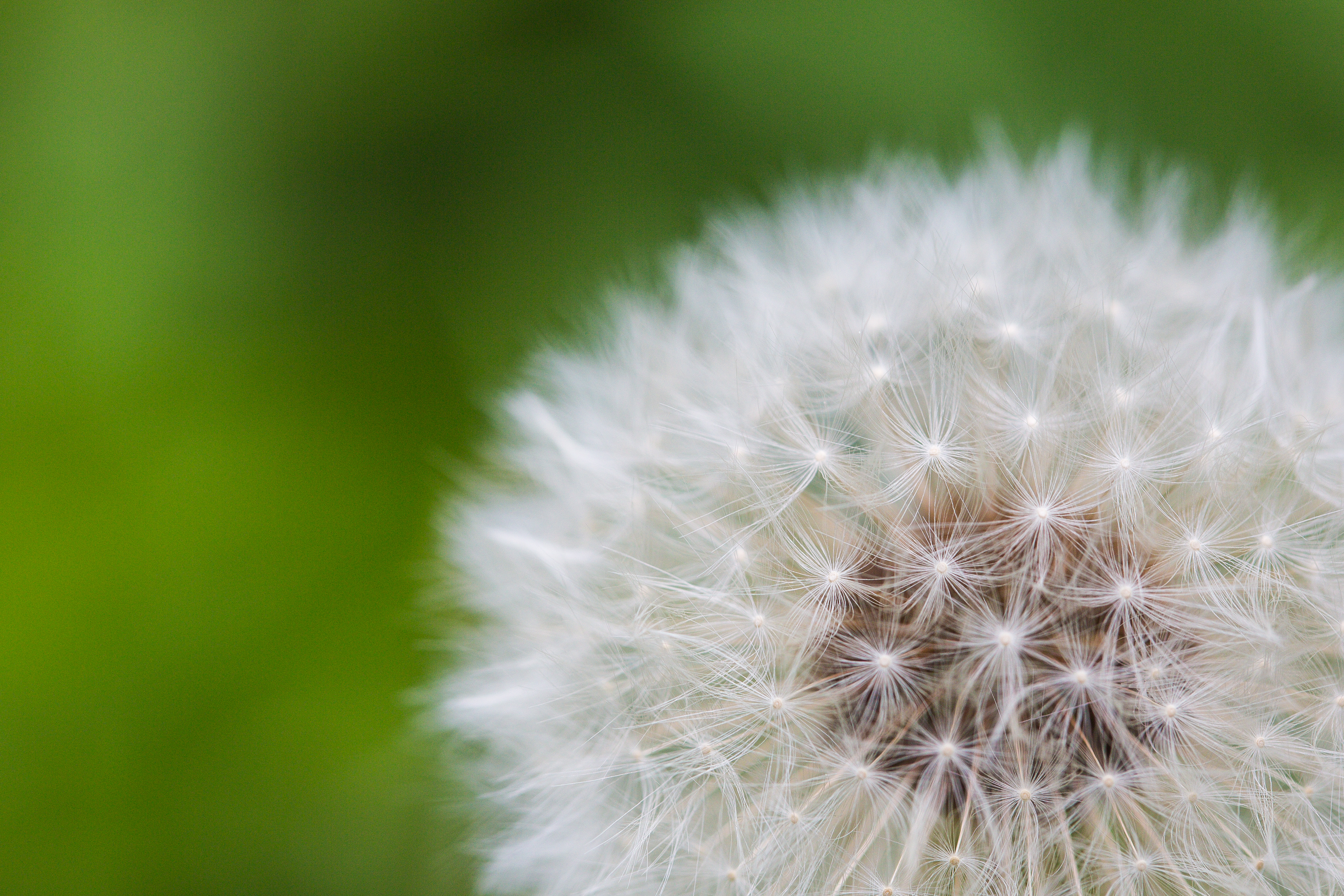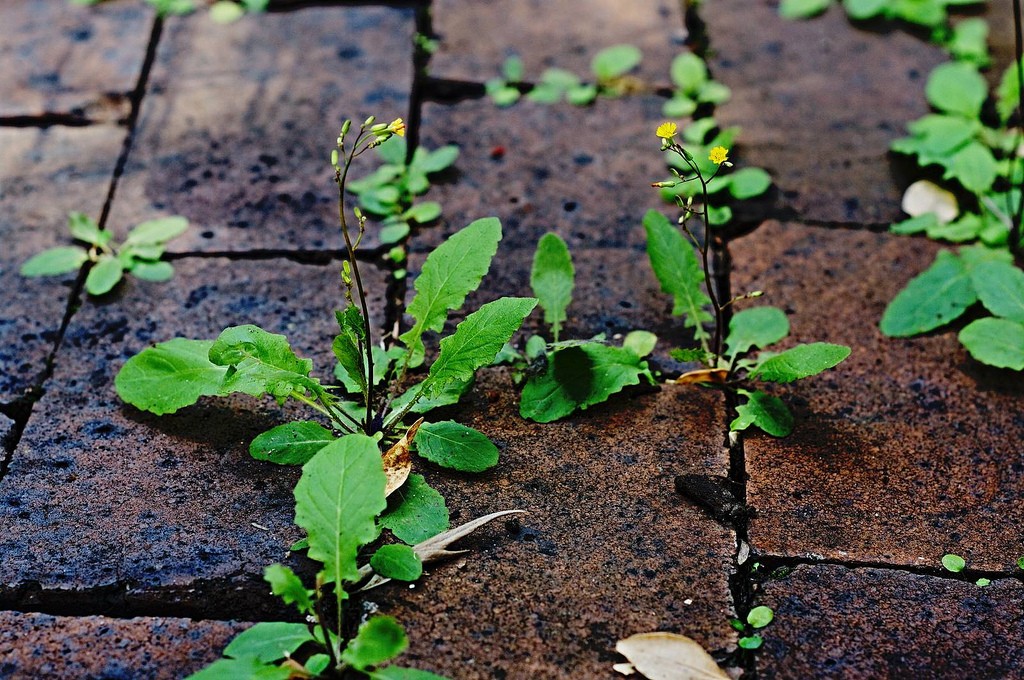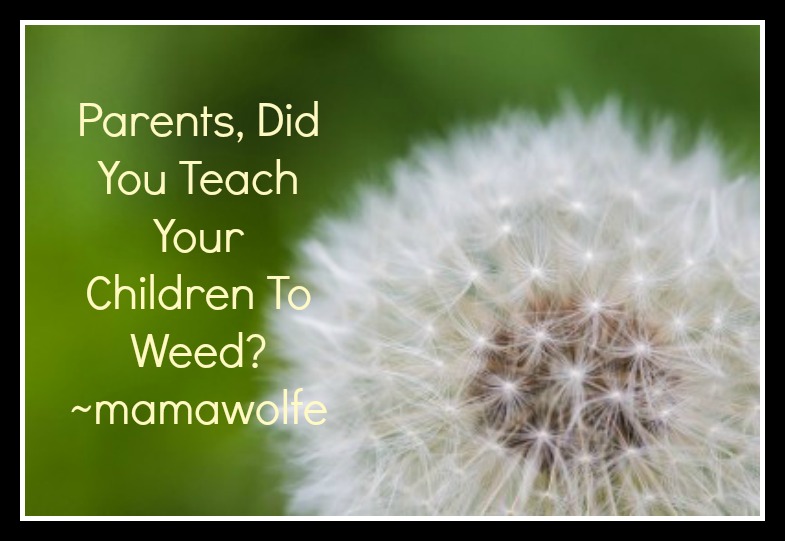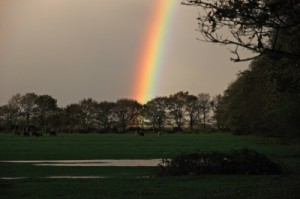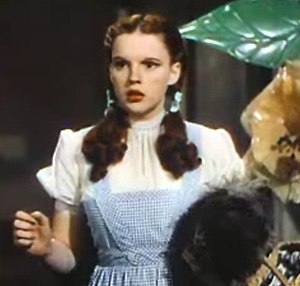Three months into my new job, I’ve made some discoveries about teacher and students and education – and myself. Now that I’m no longer in the classroom every day, I’ve had some space to think about the larger education community, and the impact the pandemic, remote learning, and now hybrid teaching have had on us.
I’m noticing a HUGE sense of exhaustion, regret, looking to the past and focusing on what “normally” happens that didn’t happen in the last fifteen months.
Educators are having trouble making themselves feel successful about education. It’s understandable – what we’ve been asked to do is unprecedented, undervalued and over the top of what any teaching contract outlines.
Educators – teachers, administrators, counselors, support staff – have all given everything they have to make this year come close to “normal”.
And, with the grind of “pivoting” their instruction, digitizing lessons and books and lab materials, engaging students hiding behind black Zoom boxes since March 2020, and now facing the ‘learning loss’ that will be documented for us thanks to standardized testing, educators are struggling.
So what do we do to support each other? To create a space of safety, community and acceptance for educators?
That’s what I thought of as I opened Katrina Kenison’s March 16, 2021 post, asking “What Have You Made This Year”?
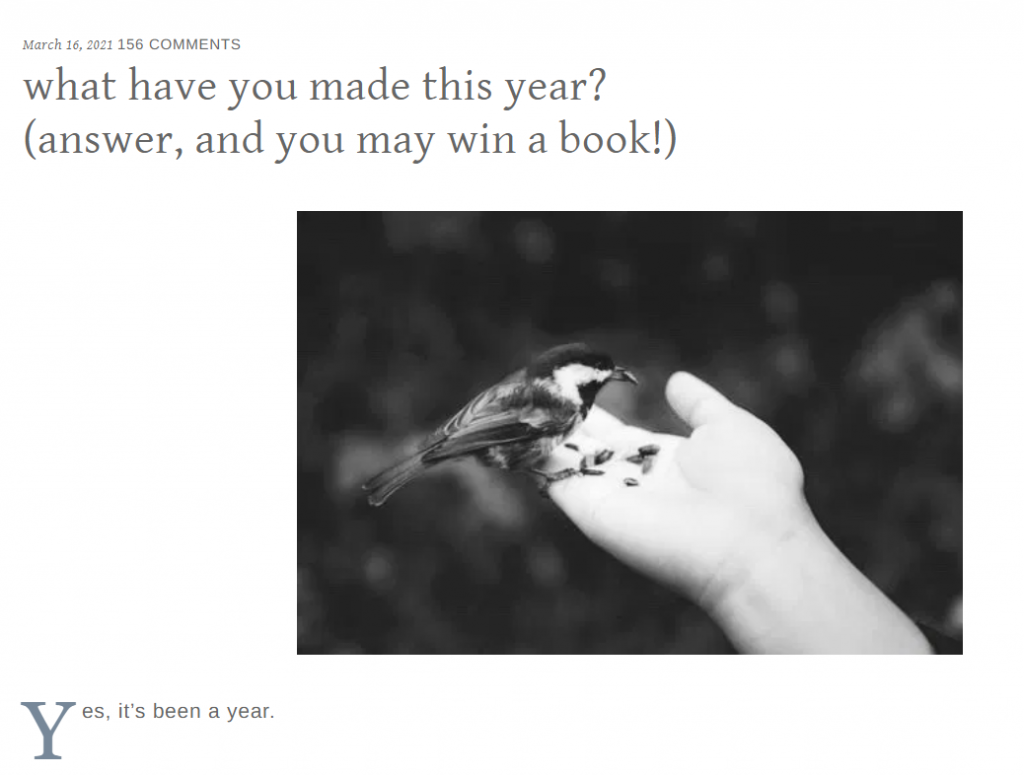
If you don’t know Katrina’s work, you’re in for a delightful experience. Katrina, a published author of several books, a mother and wife, and a believer in “celebrating the gift of each ordinary day” has brought clarity and thought-provoking writing to me. And in the March 16 post, I responded in the comments with this:
This year, I made space for my self. Amidst all the cramped physical and mental space of the shelter-in-place, I found the space to be still. To turn off the Zoom classes and stop grading papers, to make space to meditate, to watch the squirrels try their best to upend my birdfeeders, and to see my adult children strive to adapt to the changes in college, wedding plans, and living spaces. Through it all, my self has been given wings to try out – and the space to fly.
I didn’t respond not only because I wanted to read the book Katrina was offering. Rather, I wanted to be part of the magic I saw in her simple acknowledgement of what she HAD made, what brought her ordinary joy and beauty despite the tragedy exploding all around us.
And surprisingly, I won the book anyways.
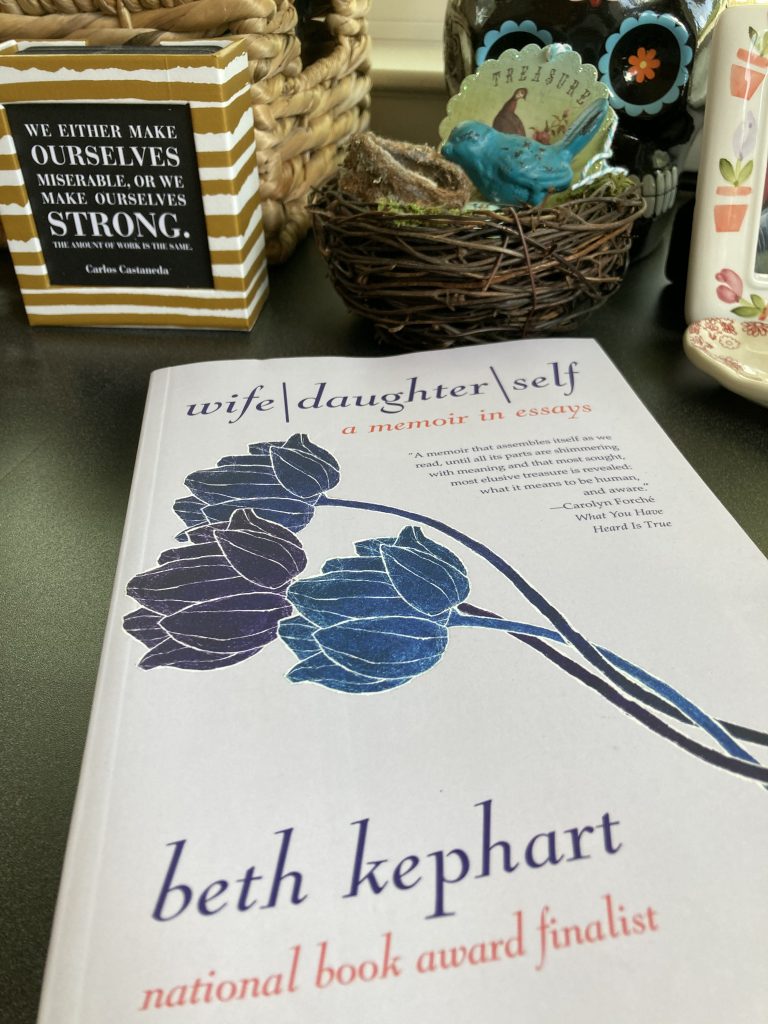
Katrina writes of author Beth Kephart, who published a memoir titled “Wife/Daughter/Self: A Memoir In Essays”:
How do we become the people we are? How are we shaped by those we love, by those who hurt us, by those who see us more clearly than we see ourselves? How do we choose one path over another, releasing our grip on old dreams even as we’re compelled to envision new ones?
How do time, pain, love, and loss finally pare away all that isn’t needed, leaving behind the essence of a self, a truth, a way onward? Is it possible to write one’s way into understanding and acceptance, into healing, into faith that who we are and what we do is enough?
Being in community with Katrina and Beth makes me feel like making something is possible, even now when like so many educators, I’m feeling drained and depleted and need to mentally and physically coerce myself to my writing desk every morning. It’s not easy, putting aside the tumult of the world and allow for words to flow out, to go back through journals and posts and manuscript drafts to make sense of decades of thoughts about teaching and parenting. But that’s what I’m doing, inch by inch.
I’m trying to make something positive out of this year. Are you?
A few things I’ve made along the way:
- I made videos for my students to say hello when we started remote learning in March 2020:
2. I made bread..lots and lots of bread:
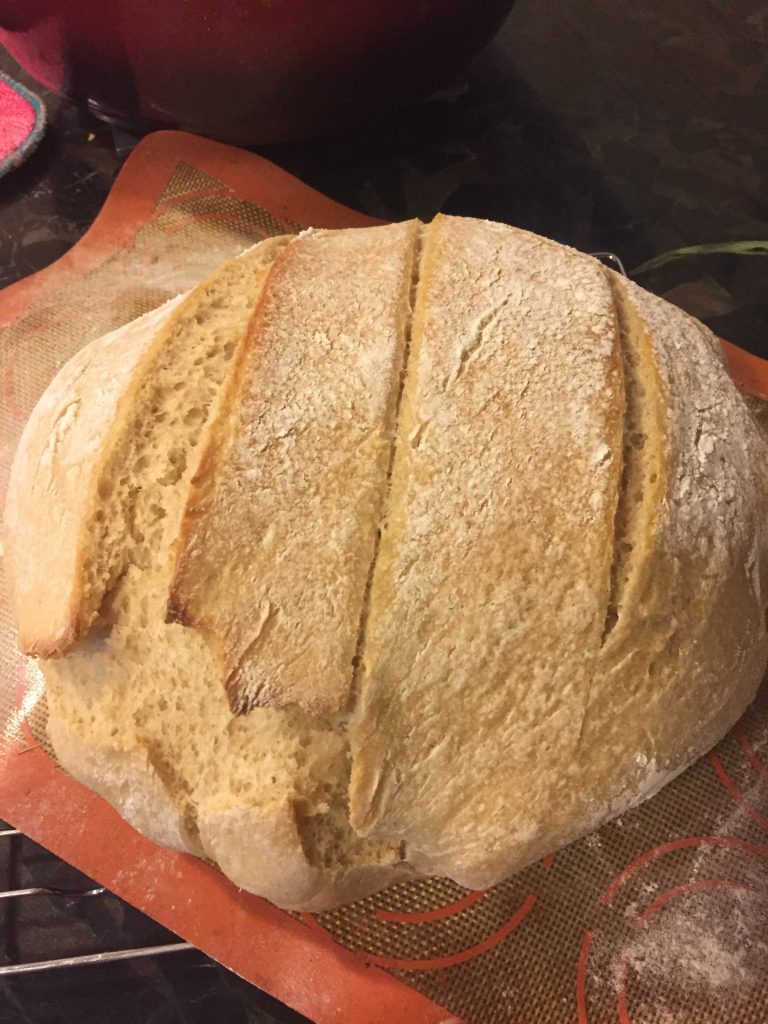
3. I made vases of garden flowers to bring the outside in:
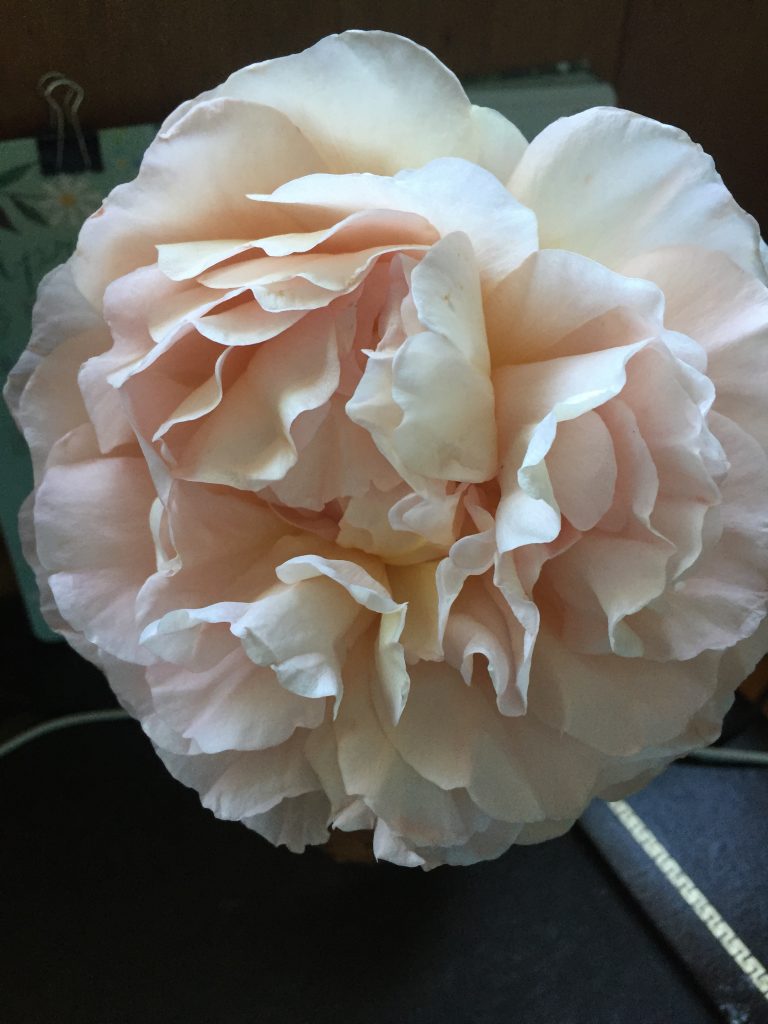
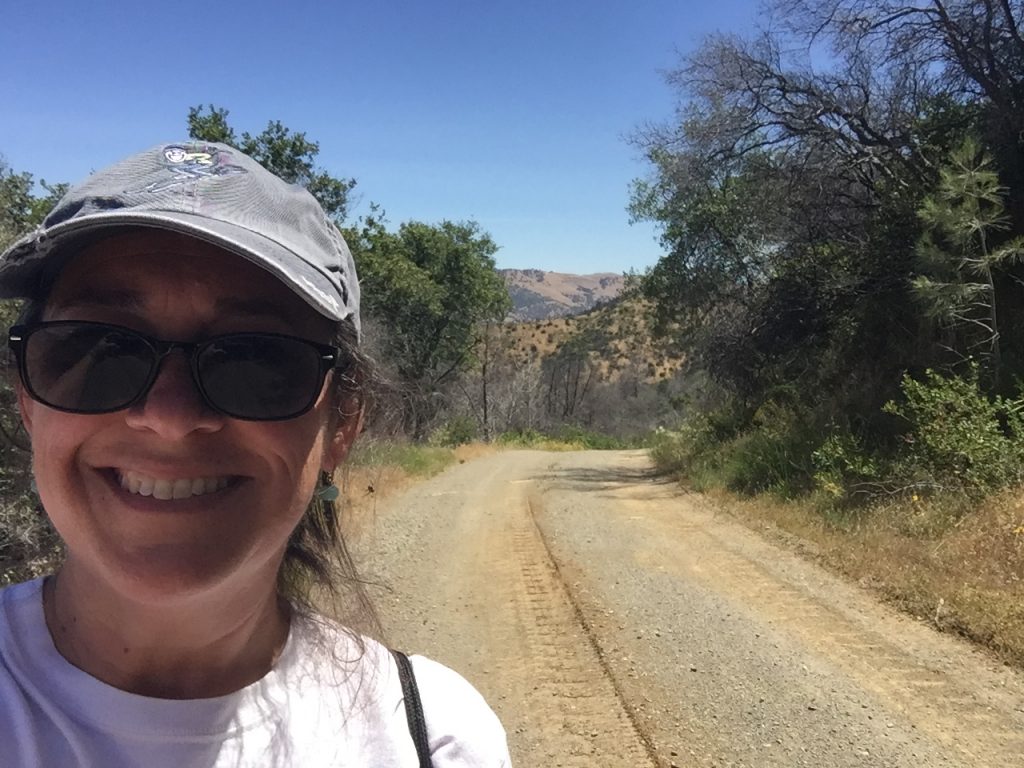
5. I made yard decorations for graduating high school seniors:
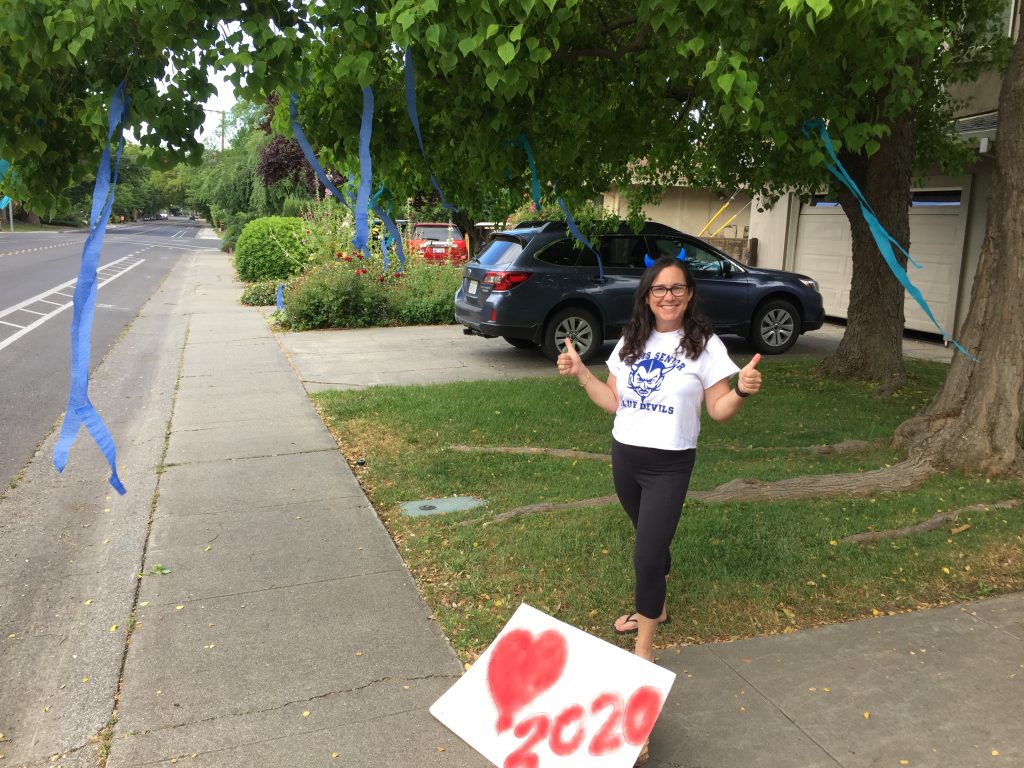
6. I made extraordinary discoveries on my walks:
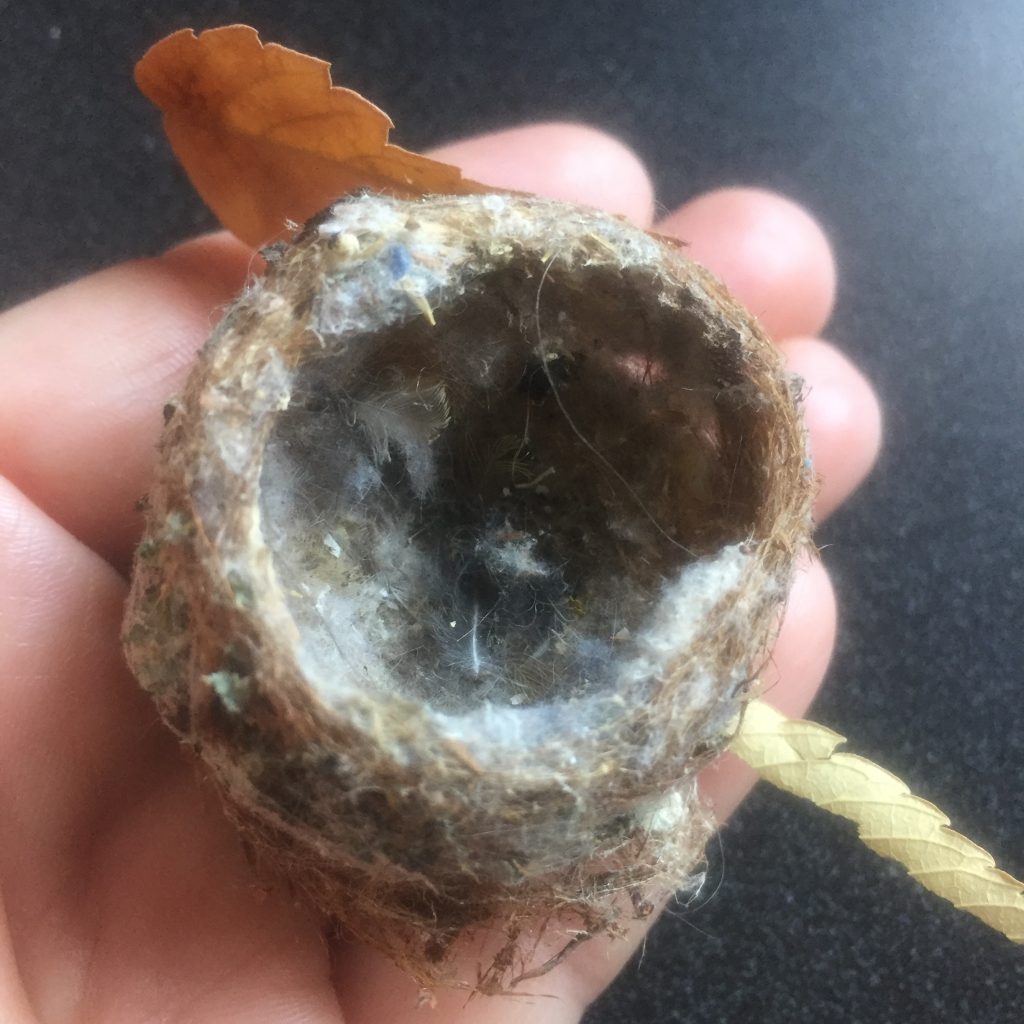
7. I made masks:
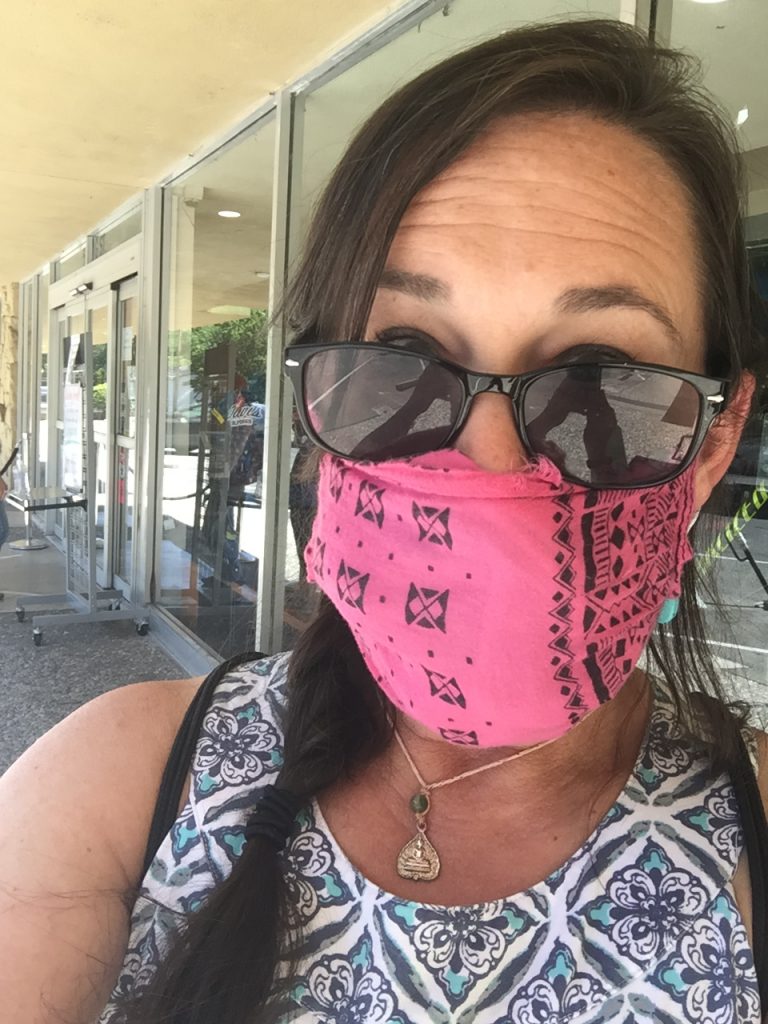
8. I made new teaching spaces:
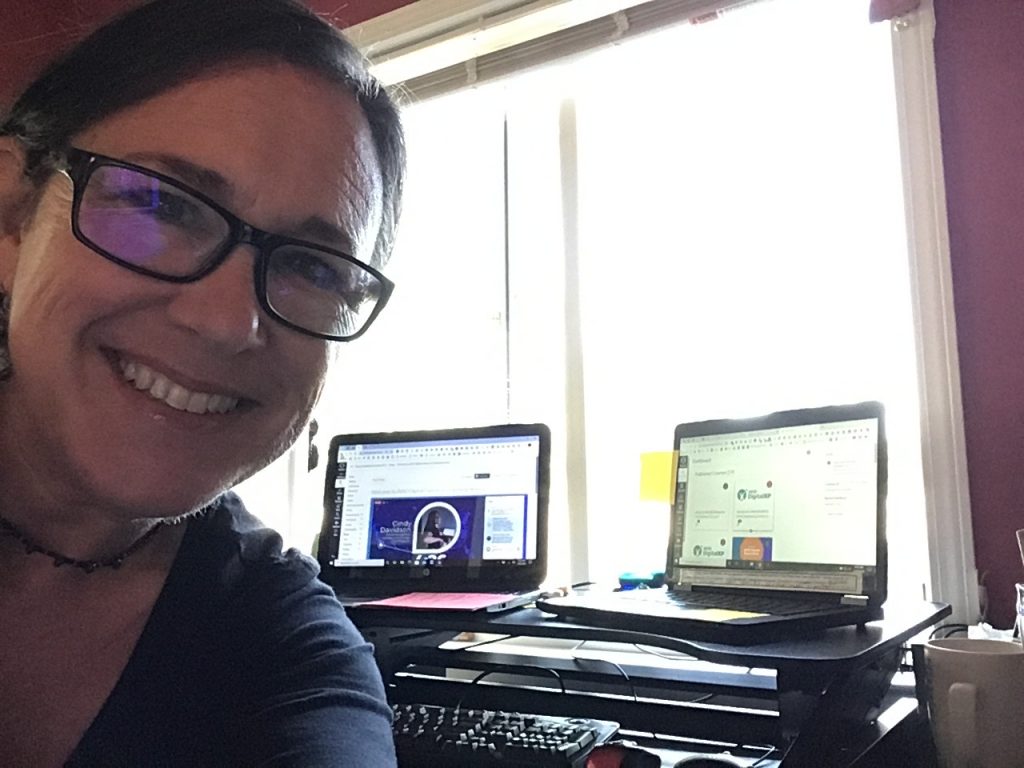
9. I made a new way to do the first day of school:
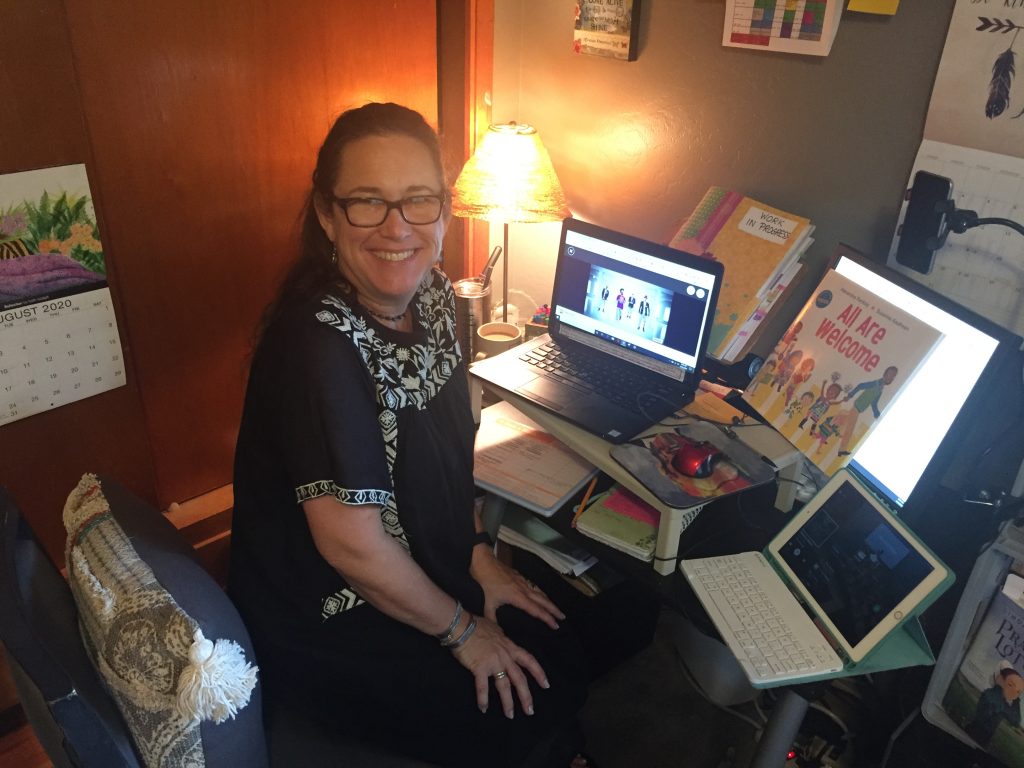
10. I made surprising discoveries in new books:
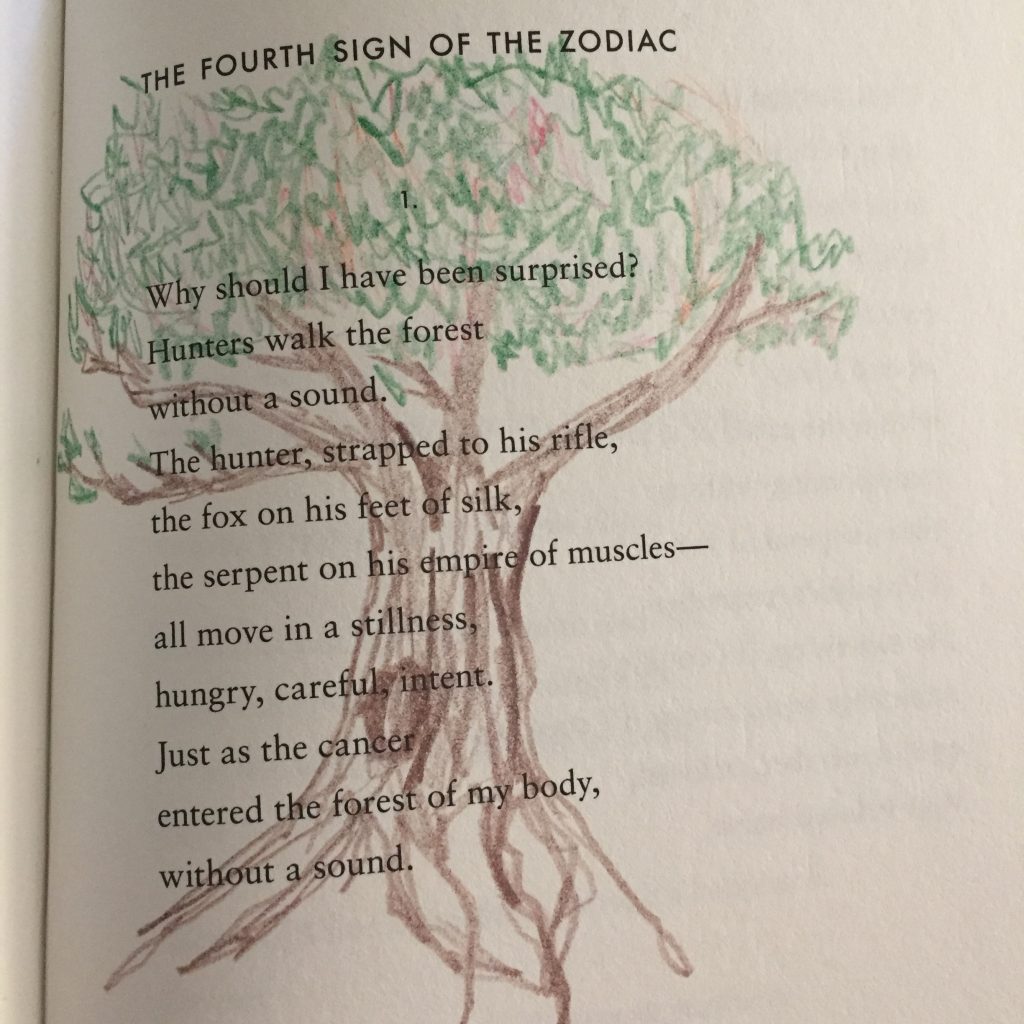
11. I made opportunities for kids to collaborate and have fun online:
12. I made a trip to the beach to see my mom:
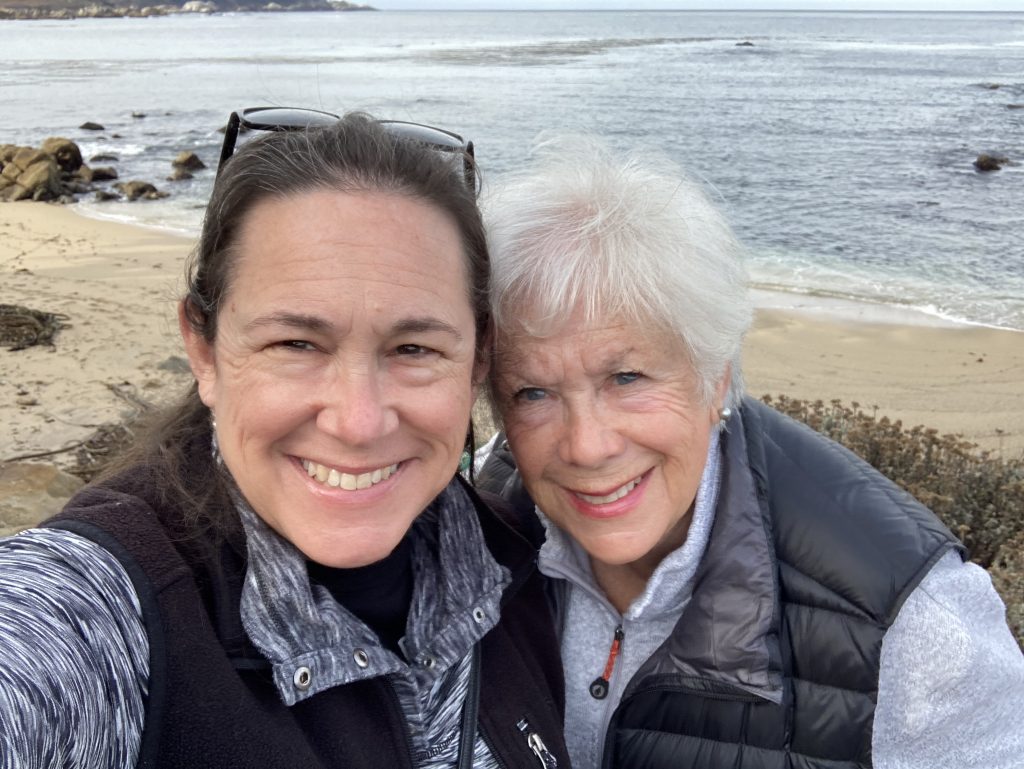
13. I made time for sunsets in favorite places:
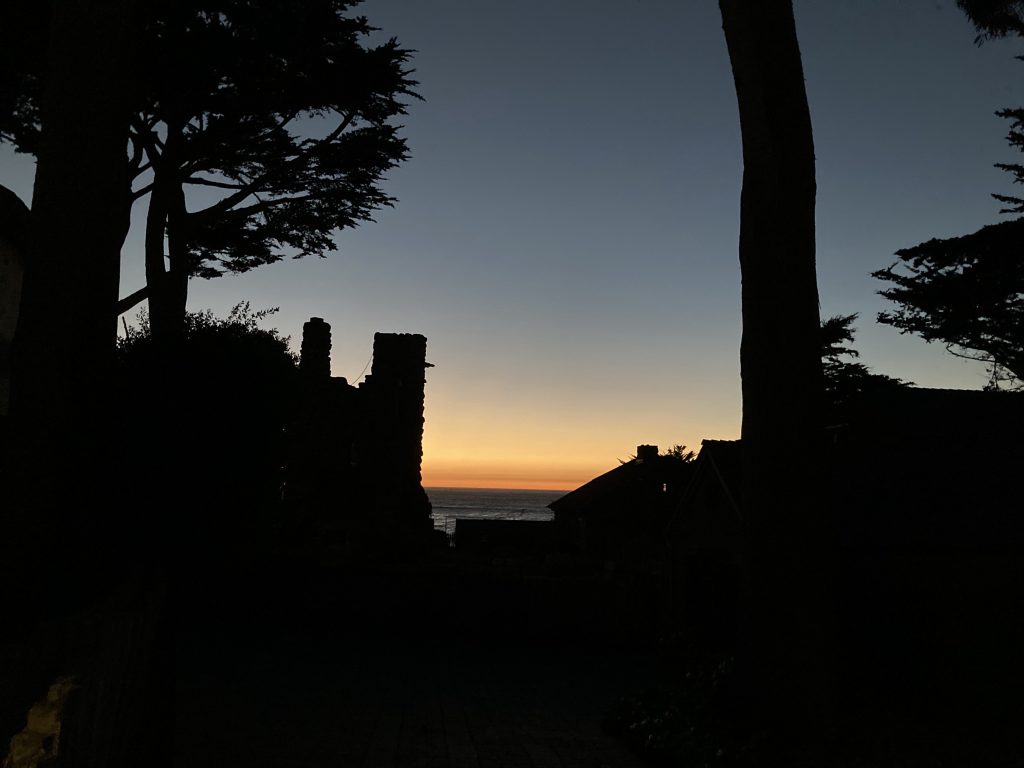
14. I made Christmas memories:
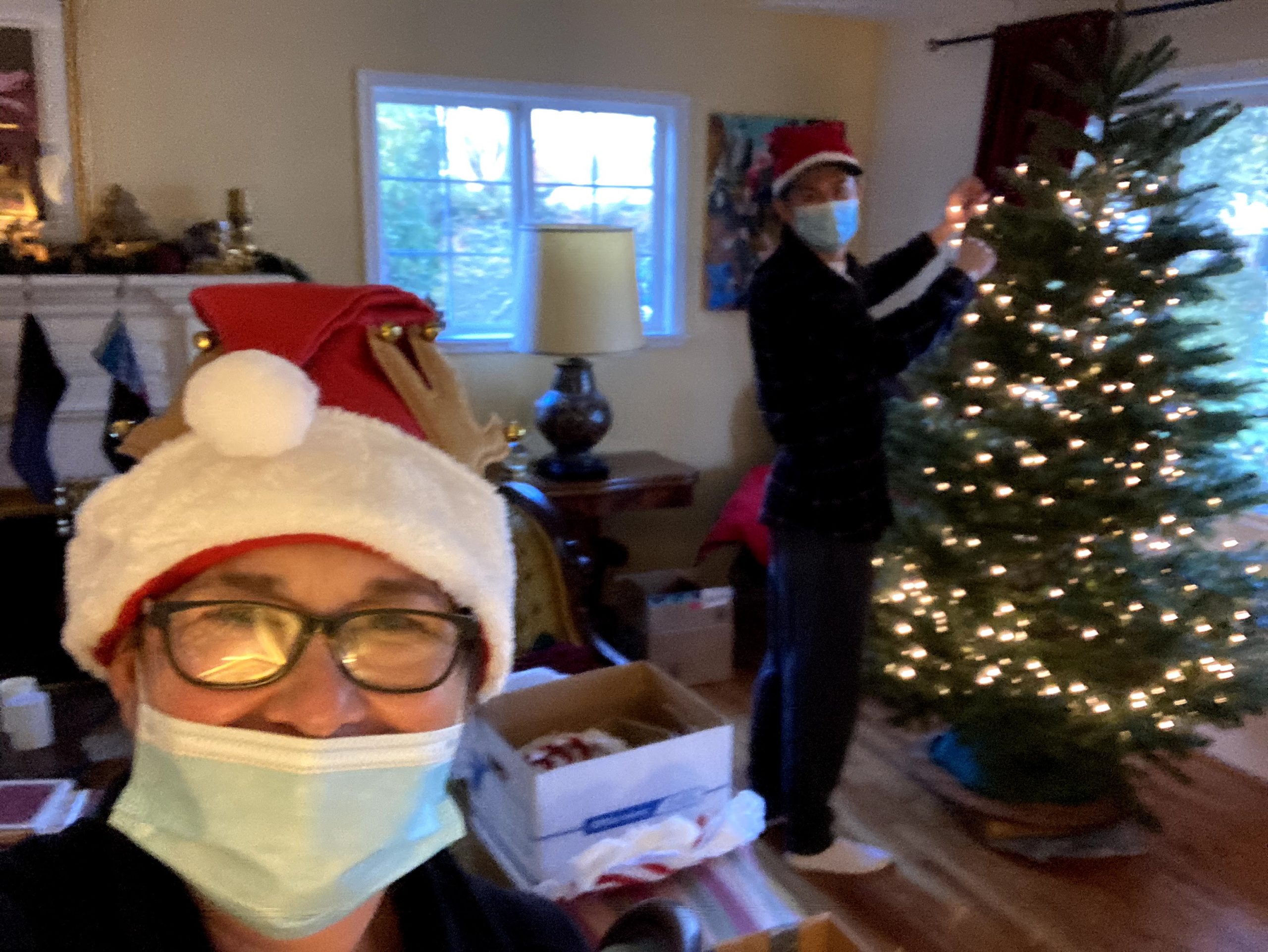
15. I made a job change:
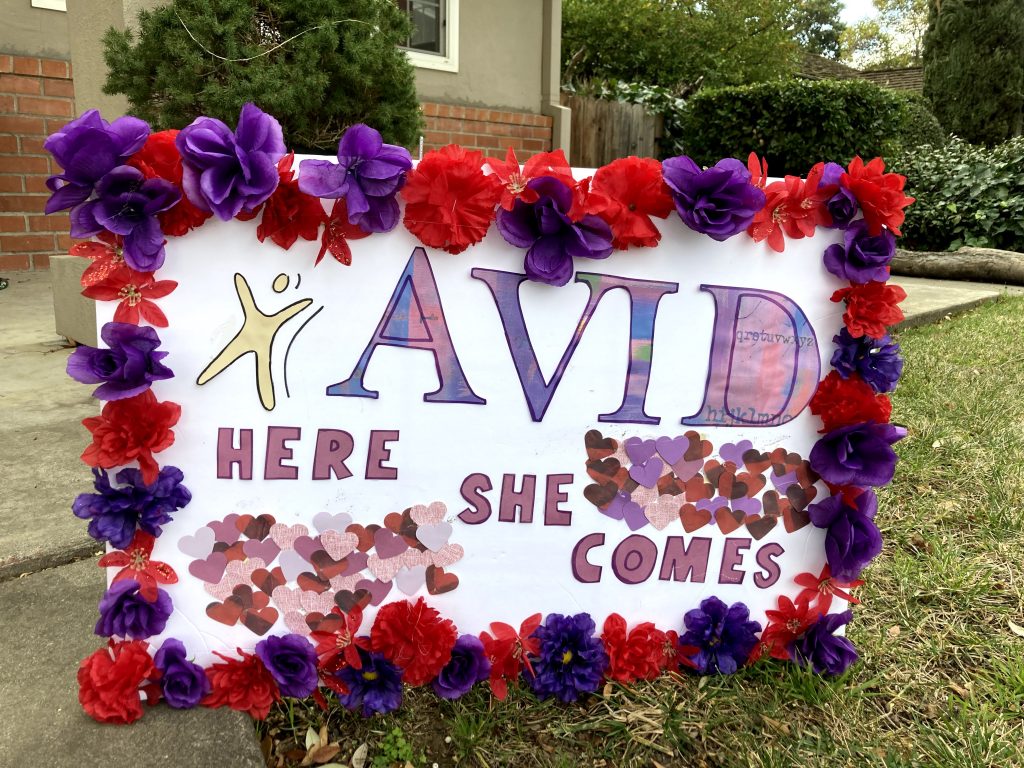
16. I made myself happy:
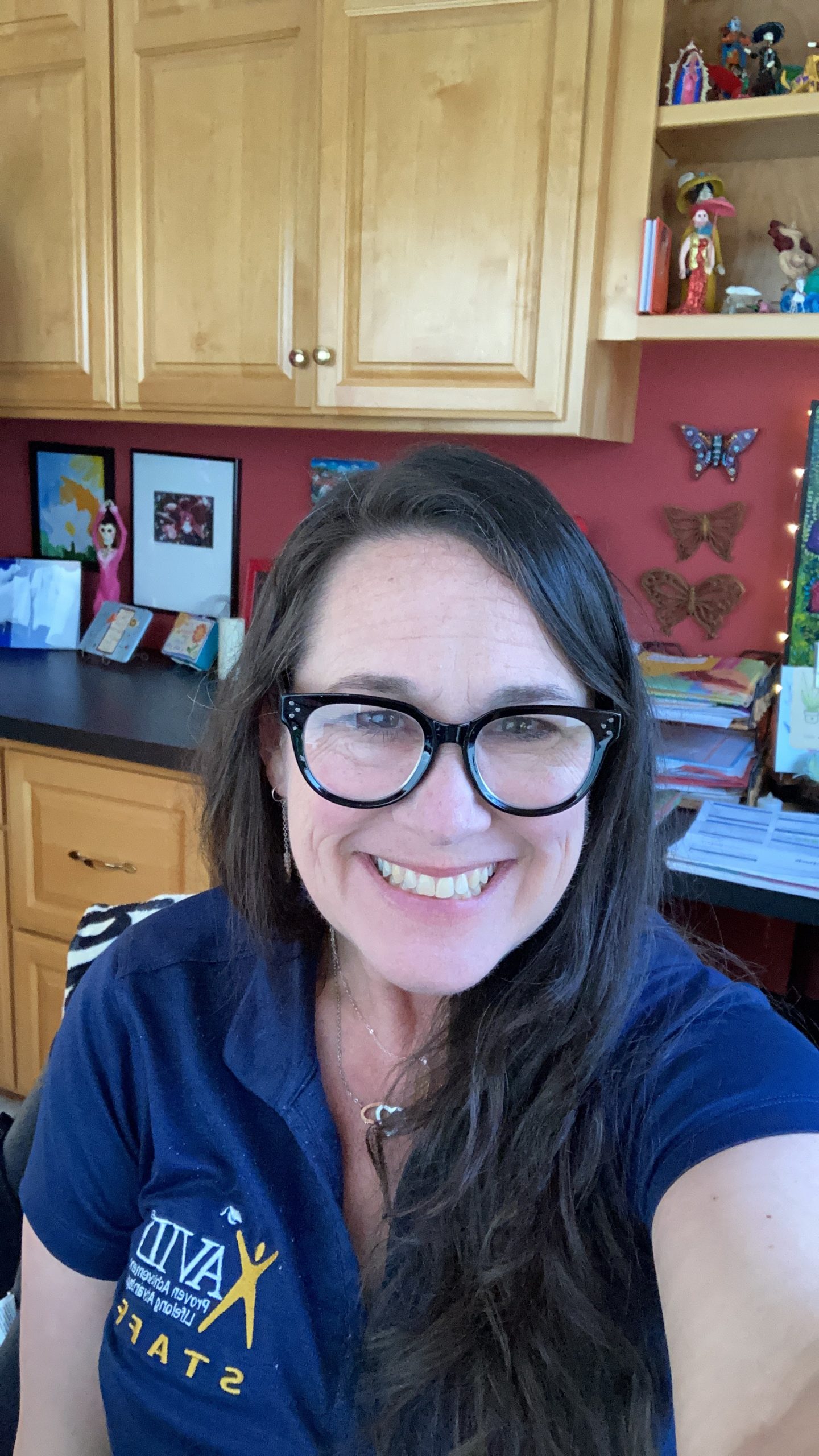
17. I made myself present:
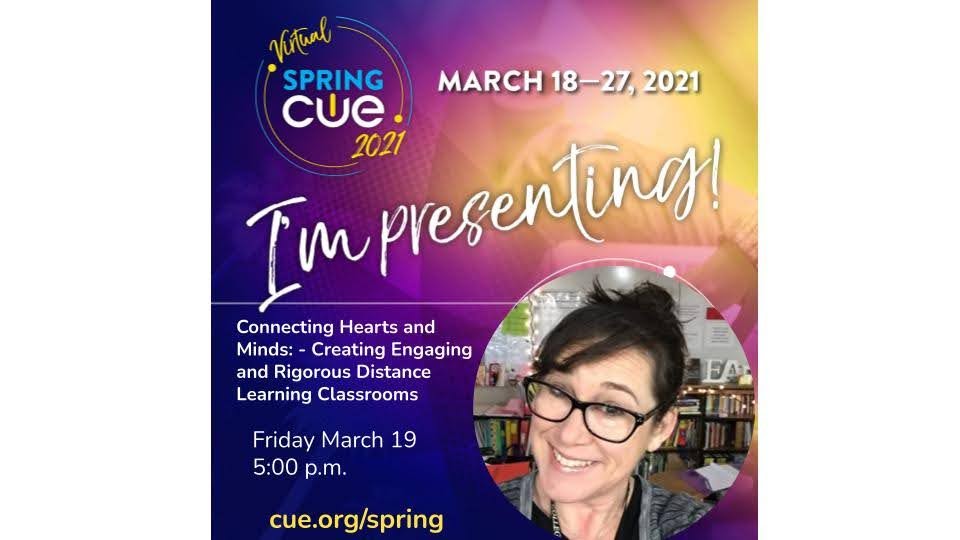
18. I made a road trip to see my daughter…finally:
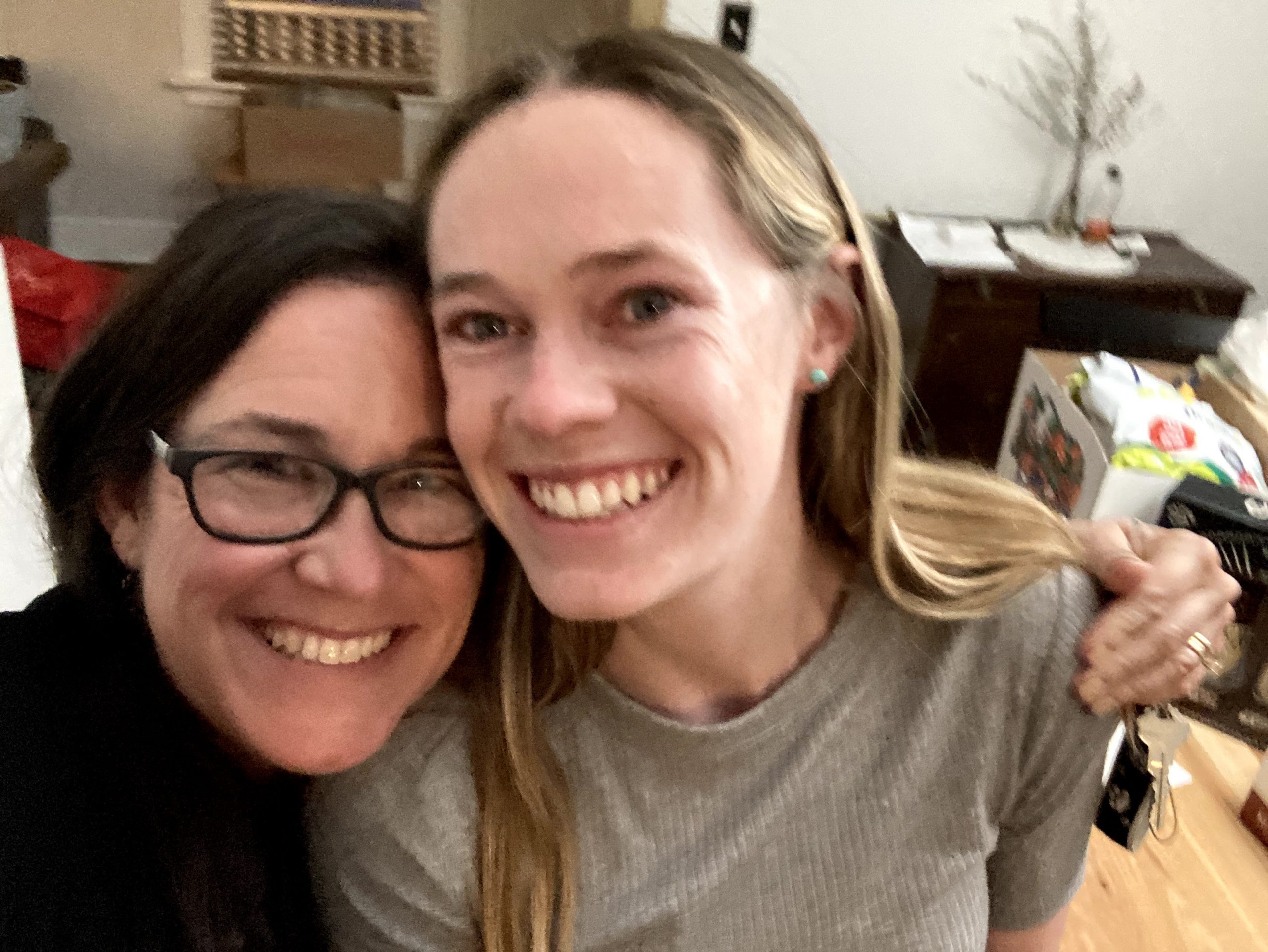
19. I made coffee…lots and lots of coffee:
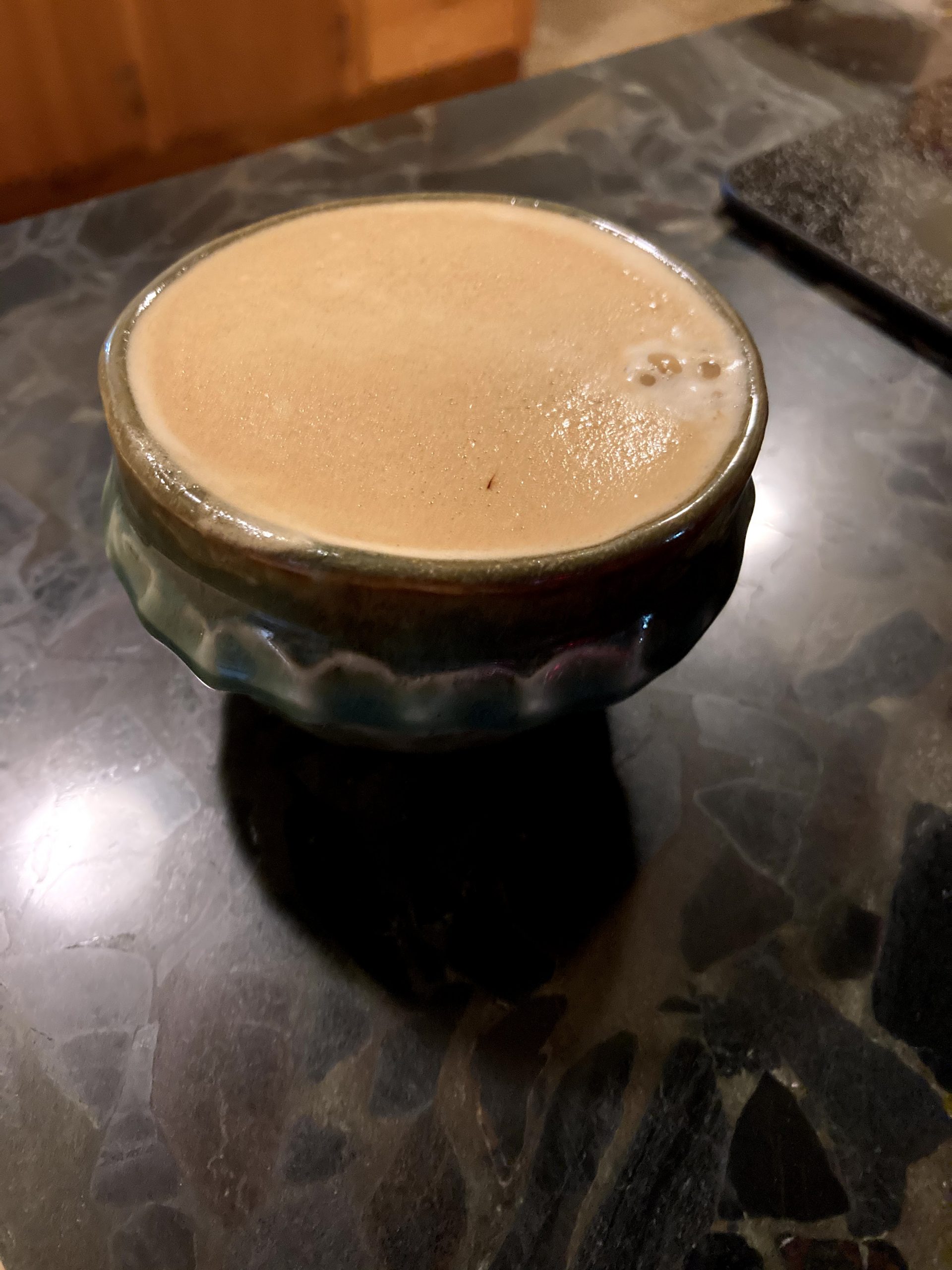
20. I made promises to myself:
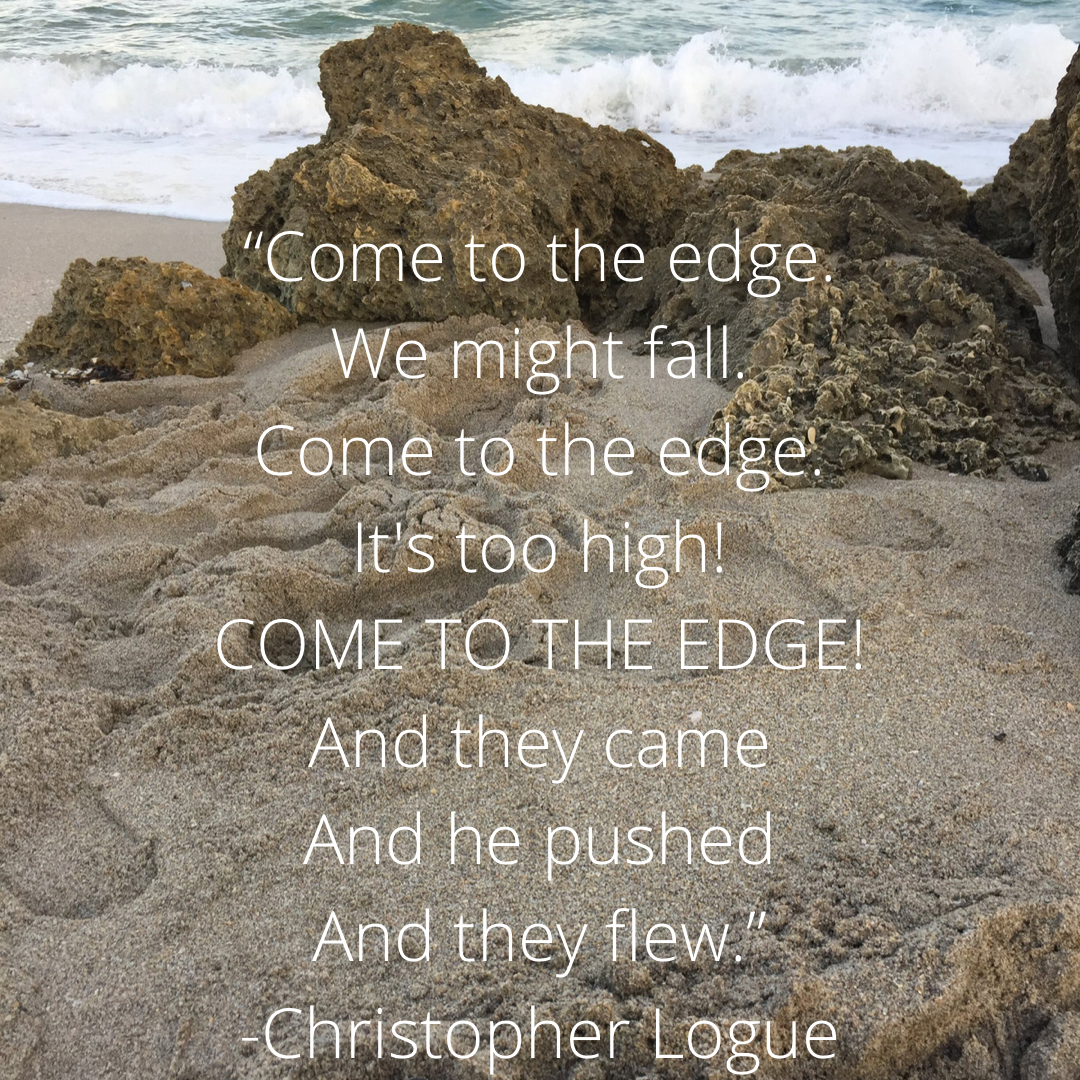
It turns out, the last year wasn’t a loss at all. I made more than I thought…and I’m feeling courageous about the future.
What about you? What have you made in the last year?
